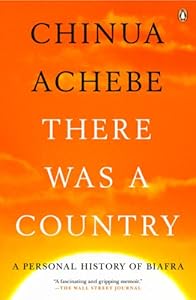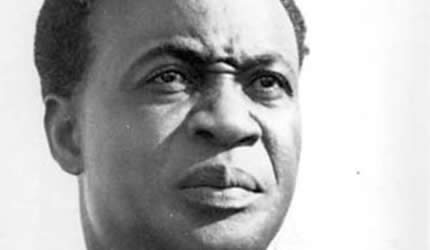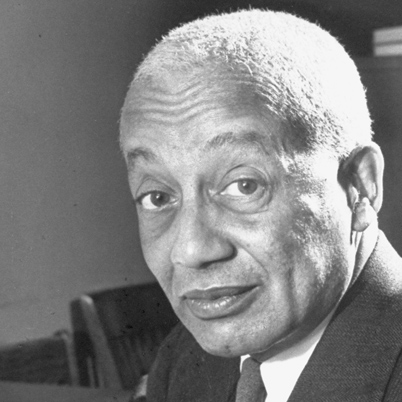Of the five northerners who were promoted—Murtala
Mohammed, Joe Akahan, Hassan Katsina, and Mohammed Shuwa were the most generously
favored: “The promotion to lt.-colonel of Murtala [Muhammed], Shuwa and Haruna
was particularly generous because at the time of the promotions, all three were
only substantive captains (holding temporary ranks as majors) yet they were
promoted to lt.-colonel”.
So then, it turned out that in a time space of just a few
months, the next phase was being readied to pounce yet again on the Igbo who
Herbert Ekwe-Ekwe describes as “the world’s most brutally targeted and most
viciously murdered of peoples” with deadly, wanton orchestrated political
violence.
Murders, infamous phone call, murders
As those heady days unfolded further, the next time that
Major Adekunle is encountered in the thick of the tragic events that aimed at
spilling innocent Igbo blood was late in the wee-hours of July 29 in Enugwu,
Igboland, which was also the regional capital of the then Eastern Region where
the army’s 1st Battalion was based.
He was the deputy to the Igbo battalion commander, Lt.-colonel David
Ogunewe. The revolt and targeted
massacre of Igbo officers and other ranks in all the army formations, which was
systematically planned by Murtala Muhammed, Theophilus Danjuma and a host of
other officers from nationalities in the upper Niger, had already commenced in the
Abeokuta Garrison late in the night of the previous day. It had spread to Lagos and Ibadan, the
capital of the Western Region where Major-General Aguiyi-Ironsi and his host,
the military governor of the Region, Lt.-Colonel Adekunle Fajuyi had been
abducted from the State House by northern soldiers under Theophilus Danjuma’s
command. Lt. Colonel Yakubu Gowon’s
infamous telephone call from Lagos to the State House, Ibadan had, according to
Theophilus Danjuma, been made and coincidentally taken by Danjuma himself and
the following conversion had ensued between them:
Gowon: Hello I
want to speak to the brigade commander.
I want to speak to Colonel Njoku.
Danjuma:
May I know who is speaking?
Gowon: My name is Gowon. Yakubu Gowon.
Danjuma: Ranka
dede. This is Yakubu Danjuma.
Gowon: Yakubu. What are you doing there? Where are
you?
Danjuma:
I am in the State House here.
Gowon: Where is the brigade commander?
Danjuma:
He is not around.
Gowon: Have you heard what has happened?
Danjuma: Yes. I
heard and that is why I am here. We are about to arrest the Supreme
Commander. The alternative is that the
Igbo boys who carried out the January coup will be released tit for tat since
we killed their own officer[s].
Gowon
(after a long pause): Can you do it?
Danjuma: Yes. We have got the place surrounded.
Gowon: Alright but for goodness sake we have had
enough bloodshed. There must be no
bloodshed.
Danjuma: No. We
are only going to arrest him.
(Siollun, 2009: 105)
What illogical meaning would any reasonable person read
into the chummy-chummy conversation between Yakubu Gowon, a lieutenant-colonel,
and Chief of Army Staff at the time and Theophilus Danjuma, a junior officer
who was evidently caught red handed in the course committing a grievous offence? The “Can you do it?” and “Alright…” clearly
constitute a “go ahead”, while the “…but for goodness sake we have had enough
bloodshed” is a worrisome after thought.
What would a junior officer who surrounded the location of his Supreme
Commander with unidentified and armed soldiers and proclaim that they were “only
going to arrest him” without explaining to the superior officer—who never
bothered to ask—where he would take the former to, do with him after he
does? Take him to a picnic? The world has since that horrible day known
that it was not what happened. Furthermore,
it is incontrovertible that even Yakubu Gowon himself is implicated from that
outset in the phases of the Igbo genocide that took place in the period,
1967-1970. Back to Benjamin Adekunle.
In Enugwu where Adekunle is encountered again in that
stream of events, not much is heard about him even though quite a lot can be
gleaned from the stream of events to implicate him in the genocide of the Igbo
during the time. In the 1st
Battalion, there is a Captain Baba Usman, a northerner in the army intelligence
unit who Murtala Muhammed and his gang designated to spearhead their assault on
Igbo officers and men in Enugwu. But as
fate would have it, Usman was in faraway city of Aba that night. His absence deprived his fellow northern
officers in the battalion of the catalytic leadership they needed to swing into
action after they dressed up and got themselves ready. Ogunewe was quick to deploy his able crisis
management skills right after he was alerted by the fabled distress telephone
calls from a Lt. Ogbonna in the Abeokuta Garrison. That, coupled with Usman’s God-sent absence
from base, put Ogunewe ahead of the genocidists:
Ogunewe found
Northern soldiers inn his battalion (including Captain Gibson Jalo and
Lieutenants Shehu Musa Yar’Adua, M. D. Jega and A. A. Abubakar) dressed in
combat fatigues and readying themselves to commence an assault in Enugu. Using all his persuasive powers, he managed
to convince them to hand over the armory keys and negotiated a tense but
effective truce with Northern soldiers” (Siollun, 2009: 16). That, not withstanding, Murtala Muhammed’s
repeated signals to his fellow northerners still galvanized some of them who
still “attempted to break into the Enugu armory but were overpowered (Siollun,
2009: 16).
As the spilling of innocent Igbo blood sustained, was it
by happenstance that when Yoruba officers felt so ‘concerned for their safety’
and “sent a delegation consisting of Lt.-Colonel Obasanjo, Major Oluleye and
Captains Akinfenwa and Timothy B. Ogundeko to the Northern Region’s military
governor Lt.-Colonel Katsina, to report their fears” (Siollun, 2009: 132), not
Benjamin Adekunle whose father is Yoruba from Ogbomosho and mother is Bachama;
a nationality in the upper Niger, not Emmanuel Abisoye, not David Jemibewon and
the other Yoruba officers from northern Yorubaland, which was part of the then
Northern Region were included?
The tenor, i.e. his complicity in the wanton wastage of
innocent Igbo lives, of the narrative remained the same when next Benjamin
Adekunle is encountered: As
the deputy
commander of the 1st battalion in Enugu… [w]hen a decision was made to
repatriate army officers [and rank and file] to their regions of origin,
Adekunle and Northern soldiers in his unit (sic) were to leave Enugu and head
first to Kaduna, and then to Lagos.
Simultaneously a group of surviving Igbo soldiers that had been detained
in Kaduna prison for their safety were to be
repatriated to Enugwu via Lagos. When they were released for transportation by
train to Enugu, Adekunle promised them safe
passage to Lagos from where they could then
proceed to Enugu. Northern soldiers in Adekunle’s battalion and
the Igbo soldiers were placed on the same train. Some Northern soldiers having long been
frustrated at their inability to kill Igbo thus far, finally got their
opportunity. They descended upon the
Igbo soldiers, killed them and threw their bodies off the train. For promising safe passage to the Igbo soldiers,
Adekunle too was attacked, but was saved by the intervention of Captain
Jalo. Although his father was a Yoruba
from Ogbomosho,
Adekunle’s mother was like Jalo, from the Bachama ethnic group of the Northern
Region (Siollun, 2009: 132-3).
Think of it: Major Benjamin Adekunle, the deputy battalion
commander was simply “attacked” by the same northern soldiers from his
battalion, on the same train, who “descended on Igbo soldiers, killed them and
threw their bodies off the train … but was saved” by Gibson Jalo whose mother
and Benjamin Adekunle’s mother are from the Bachama nationality in the upper
Niger. For full disclosure, this is the
same Captain Gibson Jalo of the Ist Battalion who was encountered on the night
of July 29 when he was dressed in combat attire with other northerner officers “and
readying themselves to commence an assault in Enugu” to massacre Igbo officers
and other ranks in the army.
As battlefield commander, Benjamin Adekunle projected such
unparalleled ruthlessness from the very onset of the genocidal war against Biafra that earned him notoriety and the ghoulish
moniker, ‘Black Scorpion’. He had no
qualms looking the World Press in the eyes in 1968 in southern Igboland where
he gave a press conference and proclaimed the following as the London-based
weekly, The Economist reported in its
24 August 1968 issue: “I want to prevent even one I[g]bo having even one piece
to eat before their capitulation”. In
the same story in The Economist, he
expressed what is best termed his combat conduct mantra being: “We shoot at
everything, even at things that don’t move” (The Economist, August 24, 1968 in
Ekwe-Ekwe, 2014).
Asaba, relief aircraft, outing memoir
Could such an individual with such checkered antecedence
have cultivated such hatred against the Igbo overnight? He was Yakubu Gowon’s only battlefield
commander in that war who was quietly removed from command and sidelined into
private life and made to forfeit every opportunity to have the access to enrich
himself as an actor in successive military and non-military regimes in the
Nigeria project. Benjamin Adekunle’s
mortal sin could probably have been his loud mouth, which enabled him to get
account of his atrocities on the Igbo to the World Press in his own words. Others—including Murtala Muhammed who was
implicated in the massacre of Asaba males, and even Olusegun Obasanjo (1981: 79
in Ekwe-Ekwe 2014)) who personally outed himself in his 1981 war memoir, My Command over the downing of one of
the clearly marked International Committee of the Red Cross (ICRC) small
civilian aircraft that ferried relief supplies to starving Biafran women and
children by Gbadamosi King on his orders on June 5—who kept mute over their own
atrocities faired quite better.
Measure for measure
The last encounter with Benjamin Adekunle is this time
right after he passed away. From
newspaper reports, in his last days, he experienced what he inflicted on the
Igbo as battlefield commander: He could
not even get enough to eat or with which he could seek adequate medical
attention anywhere descent in the West.
His children scrapped around from his few benefactors for just enough to
ferry him to India
for the third-rate type of medical treatment that flourish over there in
backyard hospitals and clinics. Perhaps
the Bible is right on the mark when it intones: The measure you give, will be
the measure you will reap.
Reference List
Ejiogu, E.C. (2011) The Roots
of Political Instability in Nigeria:
Political Evolution and Development in the Niger
Basin, England
and USA: Ashgate Publishing.
Gutteridge, W.F. (1975) Military
Regimes in Africa, London: Methuen.
Obasanjo, O. (1980) My Command:
An Account of the Nigerian Civil War, 1967-1970, Ibadan: Heinemann Educational Books.
Siollun, M. (2009) Oil,
Politics, and Violence: Nigeria's
Military Coup Culture, New York: Alegora.
***Professor EC
Ejiogu was with the Centre for Africa Studies, University of the Free State, South Africa. He is the author of the paradigm-changing, The
Roots of Political Instability in Nigeria:
Political Evolution and Development in the Niger Basin, Farnham: Ashgate Publishing, 2011.
Twitter@HerbertEkweEkwe





















